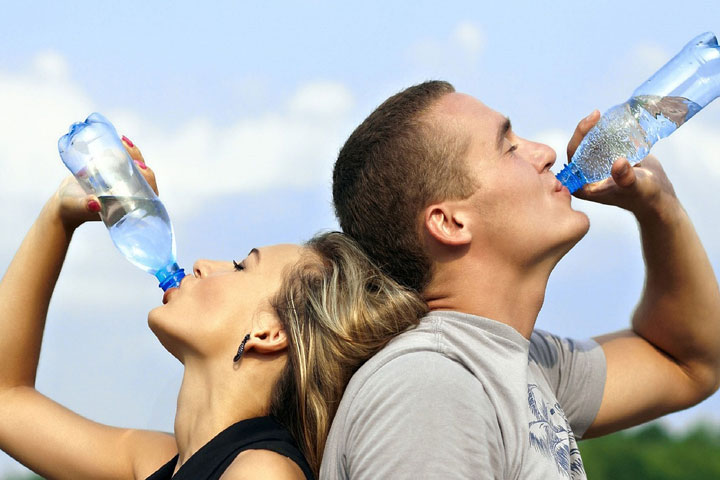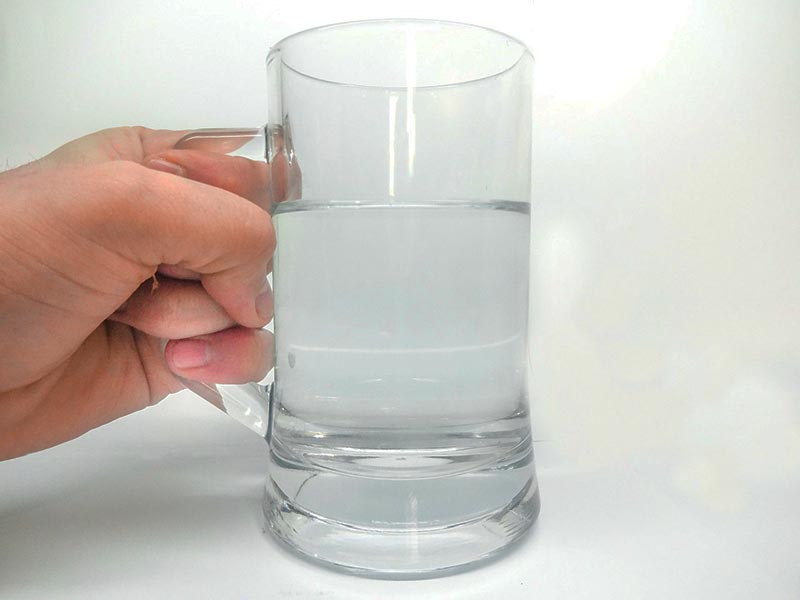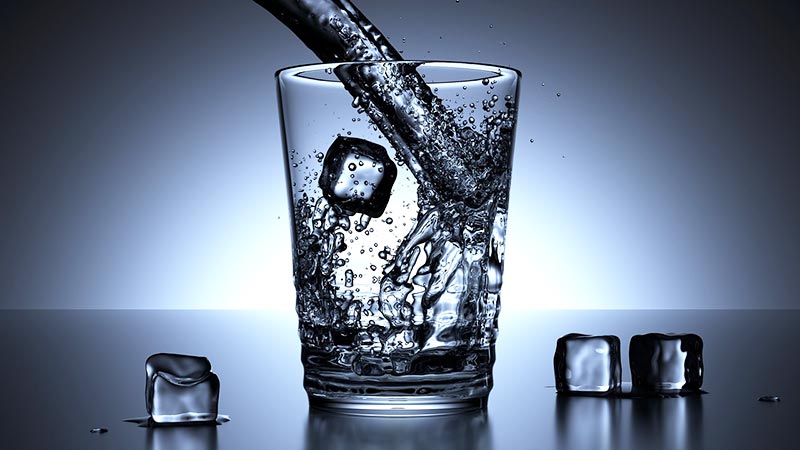
Think You’re Drinking Enough Water?
If you’re not, you could end up with excess body fat, poor muscle tone, digestive complications, muscle soreness – even water-retention problems.
Next to air, water is the element most necessary for survival. A normal adult is 60 to 70 percent water. We can go without food for almost two months, but without water only a few days. Yet most people have no idea how much water they should drink. In fact, many live in a dehydrated state.
Without water, we’d be poisoned to death by our own waste products. When the kidneys remove uric acid and urea, these must be dissolved in water. If there isn’t enough water, wastes are not removed as effectively and may build up as kidney stones. Water also is vital for chemical reactions in digestion and metabolism.
It carries nutrients and oxygen to the cells through the blood and helps to cool the body through perspiration. Water also lubricates our joints.
We even need water to breathe: our lungs must be moist to take in oxygen and excrete carbon dioxide. It is possible to lose a pint of liquid each day just exhaling.
So if you don’t drink sufficient water, you can impair every aspect of your physiology. Dr. Howard Flaks, a bariatric (obesity) specialist in Beverly Hills, Calif, says, “By not drinking enough water, many people incur excess body fat, poor muscle tone and size, decreased digestive efficiency and organ function, increased toxicity in the body, joint and muscle soreness and water retention.”
Water retention? If you’re not drinking enough, your body may retain water to compensate. Paradoxically, fluid retention can sometimes be eliminated by drinking more water, not less.
“Proper water intake is a key to weight loss,” says Dr. Donald Robertson, medical director of the Southwest Bariatric Nutrition Center in Scottsdale, Arizona. “If people who are trying to lose weight don’t drink enough water, the body can’t metabolize the fat adequately. Retaining fluid also keeps weight up.”
The minimum for a healthy person is eight to ten eight-ounce glasses a day,” says Dr. Flaks. “You need more if you exercise a lot or live in a hot climate. And overweight people should drink in an extra glass for every 25 pounds they exceed their ideal weight. Consult your own physician for their recommendations.
At the International Sports Medicine Institute, we have a formula for daily water intake: 1/2 ounce per pound of body weight if you’re not active (that’s ten eight-ounce glasses if you weigh 160 pounds), and 2/3 ounce per pound if you’re athletic (13 to 14 glasses a day, at the same weight).
Your intake should be spread throughout the day and evening. You may wonder: If I drink this much, won’t I constantly be running to the bathroom? Yes. But after a few weeks, your bladder tends to adjust and you urinate less frequently but in larger amounts.
And by consuming those eight to ten glasses of water throughout the day, you could be on your way to a healthier, leaner body.
Related: Calculating Your Own Daily Water Requirements







Leave a Reply